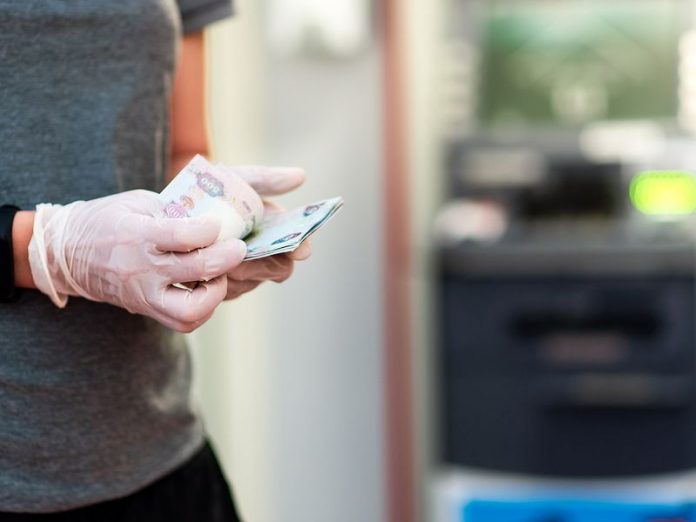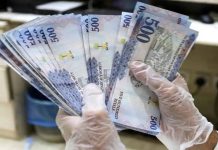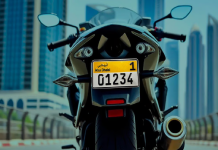How to invest with little money: Residents don’t need deep pockets to invest, grow money
HIGHLIGHTS
- Why invest?
- First steps to start investing
- How much could I earn?
- How much should I invest?
- Investing in real estate with small amounts
- Gold coins
Dubai: If inflation rate was at a very conservative estimate of 3 per cent per annum, the Dh500 in your wallet or bank right now would only amount to the value of Dh227 in 20 years. Or in the reverse of this calculation, the cost of spending Dh500 today, would cost you Dh743 (approximately), in 20 years. This means that while you continue to save, your money will either need to grow, or you’ll need to save exponentially more, to be able to actually afford the retirement you have been planning for.
One way to make your money grow is to invest it and let it grow over the long term. Investment – the word immediately brings to mind a hefty savings account, risks of day trading, a ‘diverse portfolio’, a stockbroker and a fear of loss. But here, we’ll be talking about investments that are supposed to grow in value over a couple of years with a passive investment style.
With Dh500, can one really start an investment journey? We say, yes, you can.
With growing expenses and retirement dreams, having a decent rate of growth for money is a necessity – especially if your current income is below average. Investing in stocks and real estate has always been known as a way to grow one’s wealth but until a decade or two ago, this was restricted to the rich and influential.
A common piece of financial advice is that you should aim to replace 70% of your annual pre-retirement income. However, that amount does not have to come strictly from a retirement fund, but can also include a combination of other savings accounts, investments and other income sources.
– Mark Chahwan, co-founder and CEO of Sarwa
Before we start, please note that all investments, even the ones considered safe come with risk. The key is to treat your investment journey as a long-term one, and not worry about daily fluctuations. In the long-term, counted in decades, stock markets have always shown positive growth rate.
First, clear your debts or have a plan to
As long as you have huge debts, experts also agree, your savings will suffer. Every time you shell out money for a personal loan or get a fee for your credit card bill, it eats up into what you could have saved to invest. Attack your debt full-on, going for the highest-interest one first, which is usually your credit card bill if you have outstanding debt on there. Each time you pay minimum instead of full outstanding, you are paying your bank money. And these payments can add up to bills higher than your original expense.
As for personal loans or car loans in the UAE, your payments are already on an EMI basis, which allows you to plan for those in advance. In case you have a very high outgoing amount from multiple EMI payments, check if you can consolidate the debt into easier monthly payments to free up some money.
Note down all your expenses
Create a list of all your essential and non-essential expenditure over at least three months to get a decent idea of where your money is mostly directed. This will also help you understand what you can afford to cut and what you can’t. The list is aimed at finding out the amount that you can save without struggling too much and especially without skimping on things you need each month.
An emergency fund
You’ll need a stash of money as an ‘emergency fund’ to use in case of unforeseen circumstances. This can help avoid the risk of running up further debt in case you lose your job or have another situation in your life. Financial experts recommend saving up the amount equivalent to the monthly expenses of three to six months as a safe ‘emergency fund’.
The previous steps of handling debt and noting expenses can help you get a grasp on how much you need to save and how quickly you could do it. Only after these, should you start setting aside money for investment purposes. The point of investing is that you let it grow over a long period of time and these steps will allow your money to do that untouched.
Starting with Dh500
Now that you have done the checks and balances, here’s how you can put that money to work. For our article, we are assuming that you would be able to save Dh500. This could be more or less depending on your income, expenses and debt.
Ideally, if you are saving less than that, save up and get to Dh500 or even Dh1,000 so you can start with that and then add the smaller amounts monthly to build the investments over time. Think of investing as a monthly savings scheme that has risks and gains, but in the long-term can, at the very least, beat inflation.
Where can I invest?
ETFs – a popular choice
Instead of buying one share of Tesla Inc. (TSLA), which costs around $654 as of Monday, you could invest in around 82 shares of an ETF that tracks the performance of a group of electronic vehicle companies including Tesla for the same amount.”
– GN
For the uninitiated, an Exchange Traded Fund (ETF) is an investment instrument that tracks the performance of an index, sector, commodity or other asset. It can be traded just like stock and shares but the risk is much lower since an ETF usually tracks a group of stocks or an entire index, which is much safer than, for instance, buying a single company’s stock.
For example, instead of buying one share of Tesla Inc. (TSLA), which costs around $654 as of Monday, you could invest in around 82 shares of an ETF that tracks the performance of a group of electronic vehicle companies including Tesla for the same amount. This minimises risk that pertains to any one single company’s performance on your investment, but there is still the risk of the sector’s growth or lack thereof.
While considering investing, one should determine his end goal. Why am I investing? Is it to plan my retirement? Is it to buy a house, a car? Ensure my children’s education? Or it’s simply for the sake of investing and growing my wealth. Depending on the goal, you can set yourself a timeframe for your investments and only then set the risk exposure for yourself. “
– Ramzi Khleif, General Manager of StashAway MENA
Investing in ETFs is also not as costly as managing individual stock investments through brokers. There is an ETF related to almost every sector you could be interested in – from the traditional ones such as company stocks, trading indices and commodities like precious metals, to niche sectors such as pet care, space exploration or eco-friendly/green companies.
Mutual funds have some similarities to ETFs. They also pool money from many investors for fund goals, and are considered relatively safe for long-term financial goals. However, mutual funds are actively ‘managed’ – the fund managers sell, buy or manage investments actively to reach growth goals. This means higher fees for investors, in comparison to ETFs which are passive in nature as they track performance of indices. Both of them are subject to market and investment risks.
Is it hard to invest in ETFs?
As UAE expats, investing is ETFs used to be quite hard for those of us with limited financial knowledge and/or less time to spend on creating and managing a portfolio. There is also the issue of ETF domicile – the location where the ETF is formed, registered and regulated.
Because of tax rules in various countries, if you choose an ETF which is, for example, US-domiciled or Australia-domiciled, you can be liable to pay tax on gains made. For example, for US-domiciled ETFs, there’s up to a 30 per cent withholding tax on dividends and up to 40 per cent estate tax, charged on excess of $60,000 in US-domiciled assets, in case you die. For UAE expats who are not American citizens, experts suggest ETFs domiciled in Europe – you can recognise these by the suffix UCITS (Undertakings for the Collective Investment in Transferable Securities).
Too much info?
Here is where robo-advisors come in – for the UAE expat who has limited knowledge, even lesser time but has an interest to start investing without high costs. A robo-advisor is exactly what it sounds like – an automated stock broker that manages your investments ensuring that your money is put into the most suitable portfolio based on your chosen risk profile and growth requirement.
This, however, doesn’t mean that human intervention or help is non-existent. The major advantage of automated investments is a low-cost, easy to manage portfolio for a new investor.
No minimum investment
Stashaway is one such UAE-based robo-advisor who has no minimum balance or minimum investment amount, no lock up period and no withdrawal fees.
“We do not have a minimum starting balance required for any of our portfolios. However, the fees would vary depending on the total amount of the investor’s portfolio,” Ramzi Khleif, General Manager of StashAway MENA told Gulf News. They also have a Sharia compliant portfolio which is a major requirement for many UAE-based investors.
“We have a very competitive management fees structure that varies from 0.8% for investments below 25,000 USD and reduces gradually to 0.2%, for investments above 1,000,000 USD.”
Sarwa, another robo-advisor available in UAE, however has a minimum starting investment of $500 or Dh1,836. This is a reasonably low amount, when you think of it as saving Dh500 for four months to start investing. Mark Chahwan, co-founder and CEO of Sarwa added, “Once you’ve opened your account with us, there’s no minimum amount when it comes to monthly investments and no required monthly contribution. We are in the business of making things less stressful for you, not more.”
A traditional stock broker will cost you around 2 per cent, Sarwa’s website claims. This is in addition to set up fees (up to 3 per cent) and trading fees (up to 1 per cent), both of which are free for Sarwa. There are also no exit fees, so liquidity is easier and quicker.
How much should I invest each month?
This is a major question people have for retirement goals, especially if you has no savings. We spoke to both Sarwa and Stashaway for an answer. What if a 35-year old in the UAE, who has around 30 years of working life left, wants to retire with a monthly expense amount of Dh5,000?
A lot of factors can change the amount including your life expectancy, expected annual rate of return, inflation rate, regularity of contributions etc. Here’s what the experts said:
SARWA
We assume you have 30 more beautiful years to live after retirement. For this, you will need to start putting aside $688 (Dh2,525) a month.
Assumptions:
An inflation rate of 3%
Monthly contribution increases following the inflation rate until retirement
Gross rate of return at retirement of 4.3%
Annual Management fees of 0.5%
STASHAWAY
To retire at age 65 with a AED 5,000 monthly income for 20 years, one would need to invest at least AED 1,500 every month until their retirement.
Assumptions:
Regular and equal monthly contribution for 30 years
No pension payout at retirement
Expected Returns of 6 per cent per annum
Inflation rate of 2 per cent per annum
Both of these calculations assume a rate of return for your savings [4.3 per cent for Sarwa and 6 per cent for Stashaway] which means these goals can be achieved only if your money is growing as you prepare for retirement. Inflation rate will also reduce the value of the money you have saved – putting aside Dh1,000 in cash would give you lower value in 20 years. Therefore your money growth should be able to beat, at the very least, the rate of inflation.
Can I invest in real estate with small amounts?
Yes! Something that would never have been considered possible years ago, you can now invest in real estate with small amounts through the process of crowd-funding. Real estate crowd-funding pools money from investors for the property and divides returns and gains among investors.
UAE’s real estate crowdfunding industry is still relatively new with two major players, Stake and SmartCrowd, both of which are regulated by the Dubai Financial Services Authority or DFSA. Basically both of these platforms allow investments in ready properties that can be rented out starting at either Dh2,000 (Stake) or Dh5,000 (Smartcrowd).
So with your Dh500, and saving up for at least 4 months, you could get in on a real estate investment on a platform like Stake. In an earlier interview with Gulf News, Rami Tabbara, co-founder of DIFC-based Stake said, By sharing ownership risk is reduced and investors can finally diversify their portfolio into various units [and] allowing them to hedge against any market downturn.”
And you don’t even need to be physically present to start investing – it can all be done digitally. In 2020, Siddiq Farid, CEO of Smart Crowd said to Gulf News, “Our platform enables developers to ‘fractionalize’ their real estate and distribute it digitally. They no longer need investors or buyers to be present. They can invest in their properties through our platform from the convenience of their device from literally anywhere.”
All the money invested is helped in a Special Purpose Vehicle or SPV in the DIFC for incorporation and to ensure that all the individual investors are legally registered to the property. RERA currently allows only four names on property deeds, so this SPV can help give legal ownership of the share to the investor.
At this point of time, both platforms offer ready properties that can be rented out for an annual yield.
How much can I earn?
We checked out the properties on these platforms and they offer an average of 4 to 7 per cent in net return per annum after all expenses. After the investment term, investors can vote to sell the property or hold on for another six months. The sale will then be conducted as per market evaluation. Smart Crowd also has similar methods. There is an investment return calculator on the Smart Crowd website that you could use to see by how much the money could grow based on expected rates of return and appreciation.
What if I need my money back?
There is a recommended average investment time frame of five years and currently both platforms don’t have a way to sell the shares immediately. Their respective websites said that they are working on a secondary market where you could eventually sell your share to a prospective buyer to exit the scheme with gain or loss as per the agreed upon price.
Such an investment is considered locked-in and a long-term investment.
Fees and costs
Stake makes its money through fees – a one-time 1.5 per cent on acquisition and 1.5 per cent as yearly administration fee. They also charge a 2.5 per cent exit fee and can claim 15 per cent of the profit if the sale proceeds are higher than the total funding target. This is in addition to property management costs of your investments and other related costs.
SmartCrowd also has a 1.5 per cent fee on acquisition, and a 0.5 per cent yearly administration fee. On sale, they charge 2.5 per cent in exit fees.
*The information about these platforms has been taken directly from their respective websites. Before investing, make sure to do due diligence on the licensing, legal, privacy, safety and other aspects of investment platforms. Gulf News is not responsible for any loss of money or data that results from the use of these platforms.
Investing in gold
Another way to start off investment if you’re a bit wary of stocks and shares is gold. The precious metal has had a growth spurt over the past year and might be more expensive that if you were coming in two years ago. It is important to note that gold has had some bad and good years and is very volatile. However, taking the last 20 years in to account, gold also had on average a positive growth rate.
Still want to do it? If you think buying an ornate gold necklace is the way to go about this, you might lose some of the gains to be made. 22k gold is the most popular choice for gold jewellery which is also used as a saving/investing tool by many. However, the more ornate you go, the jeweler charges as much as 18 per cent as ‘making charges’ which depends on the level of workmanship that goes into a piece.
Try gold coins
My mom used to save her money in gold by buying one sovereign 22K gold coins. She would save up just enough for one coin – 8 grams – and then buy it. The making charges on these are on the lowest range, most around 1 per cent of the cost. They can be worn on a necklace too. These are good even if you’re someone who doesn’t like to wear gold. You can just keep them safe in a home or bank locker.
We checked with a local retailer about one of these coins and as of Monday, one sovereign coin, 8 grams, will cost you Dh1,663, including VAT and a making charge of Dh15. The price will differ based on gold price fluctuations, so check prices before you plan a purchase. You could afford one of these by saving Dh500 for four months.
An advantage that gold has in terms of being an investment is that it is a liquid asset and can sold or pawned easily in case you need urgent cash. It also lasts forever if taken care of and kept safe, and can be given as valuable gifts or inheritance to your loved ones.
Speaking of safe keeping, it is one of the major risks of investing in gold this way. You need to find a way to keep the gold safe. Since it is tangible, the metal is susceptible to theft or misplacement, which can result in total loss of your money. Another risk is that gold prices can be very volatile and like all investments has risks of market fluctuations.
Your goal is what matters at the end of the day. For people like my mom, it was a way of saving and hoping that it would gain over time, which it has over the past 20 years. However, it is important to remember that gold has had very good times and then very bad times in terms of prices, so never put all your eggs in a golden basket. It can be a nice savings tool and a great choice for emergency funds.
Saving in this way is no way small or insignificant. Many expatriates have realised their life goals of building homes or buying land using such savings accumulated and gained over years.
Something is better than nothing
If you still are wary about all of this, don’t get into it. Investment is a big decision and until you do decide, start saving away. Handle your debt, plan your expenses, create an emergency stash and start saving today so you can think of securing your retirement future.
This article is not to be considered as investment advice and is not an endorsement of the mentioned platforms, investment tools or people. The information has been either supplied by authorised spokespeople or collected from authorised channels of the said platforms. gulf.informalnewz is not responsible for any money, asset or data loss that results from any such investments. Do your due diligence before using any such investment tool or platform. All investments are subject to market risk.




